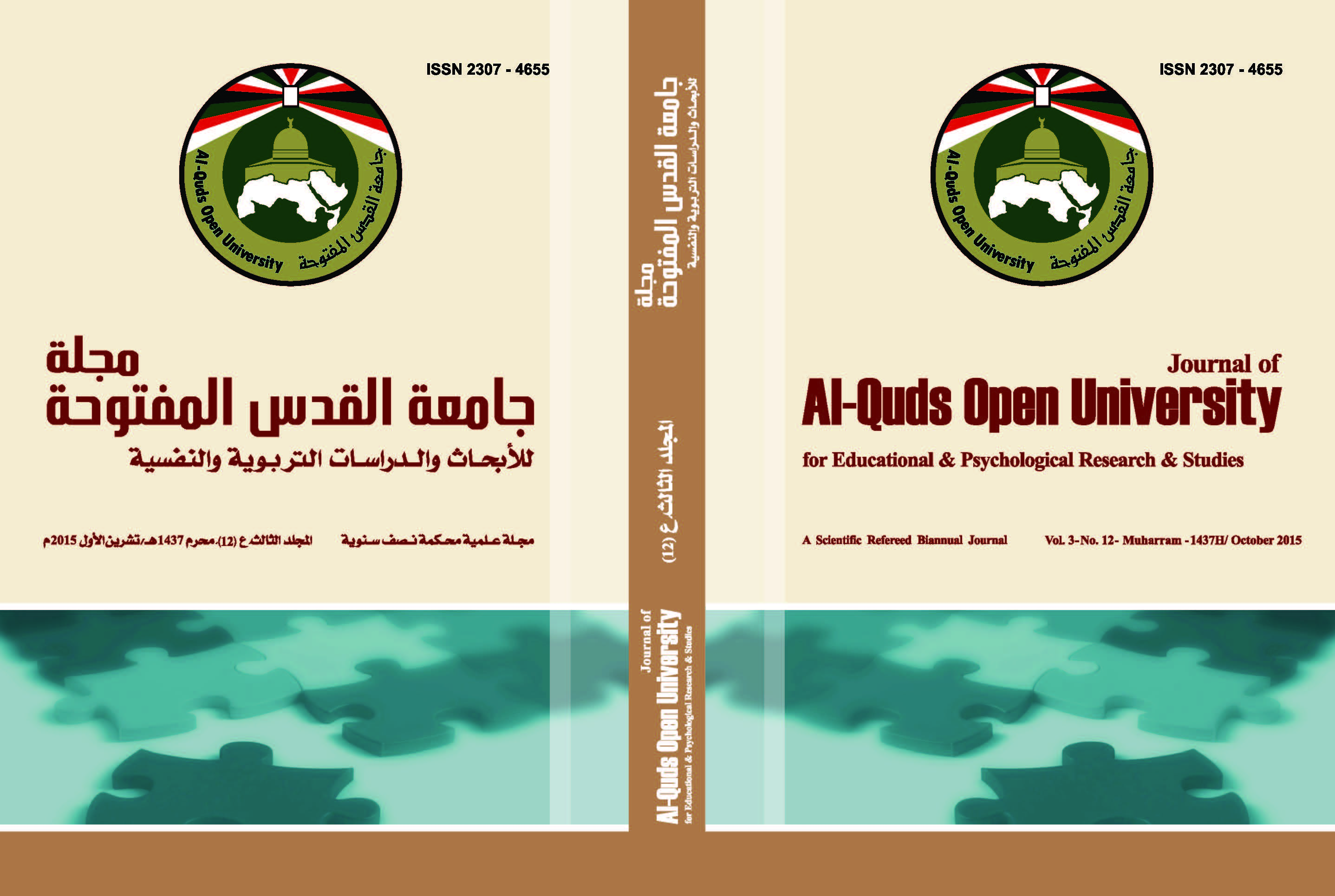The Effectiveness of a Cognitive-Behavioral Counseling Program on Reducing The Level of Post- traumatic Stress Disorder among a Sample of Displaced Syrians in Jordan
Keywords:
cognitive-behavioral counseling program, Post- traumatic Stress Disorder, displaced Syrians, JordanAbstract
This study aimed to investigate the effect of cognitive behavioral
counselling program in reducing Post- traumatic Stress Disorder among a
sample of displaced Syrians to Jordan. The study population consisted of all
displaced Syrians to Jordan who are living in Ramtha camp, totaling 4,500
people until February, 2013. The study sample consisted of 24 members of
the displaced Syrians, who have achieved the highest scores on the Posttraumatic
Stress Disorder Davidson scale. The members of the sample were
randomly divided into two groups: an experimental group which consisted
of (12) individuals, and a control group which consisted of (12) individuals.
Members of the experimental group received a cognitive behavioral
counseling program, while the members of the control group did not have
any counseling program.
The results of the (ANCOVA) analysis showed differences with a
statistical indication at the level of significance (a ≤0.05) between the
experimental group and the control group on the degree of Post- traumatic
Stress Disorder scale in favor of the experimental group after completing
the program directly; that is, cognitive behavioral counseling program has
a positive effect in reducing symptoms of Post- traumatic Stress Disorder.
The (T- test) results indicated that there were no difference with a statistical
indication at the level of significance (a ≤0.05) between the scores of the
experimental group on the Post- traumatic Stress Disorder scale after
completing the program directly, and the scores of the experimental group
after a month of completing the application of programDownloads
Published
How to Cite
Issue
Section
License
- The editorial board confirms its commitment to the intellectual property rights
- Researchers also have to commit to the intellectual property rights.
- The research copyrights and publication are owned by the Journal once the researcher is notified about the approval of the paper. The scientific materials published or approved for publishing in the Journal should not be republished unless a written acknowledgment is obtained by the Deanship of Scientific Research.
- Research papers should not be published or republished unless a written acknowledgement is obtained from the Deanship of Scientific Research.
- The researcher has the right to accredit the research to himself, and to place his name on all the copies, editions and volumes published.
- The author has the right to request the accreditation of the published papers to himself.







2.png)






_2.png)

